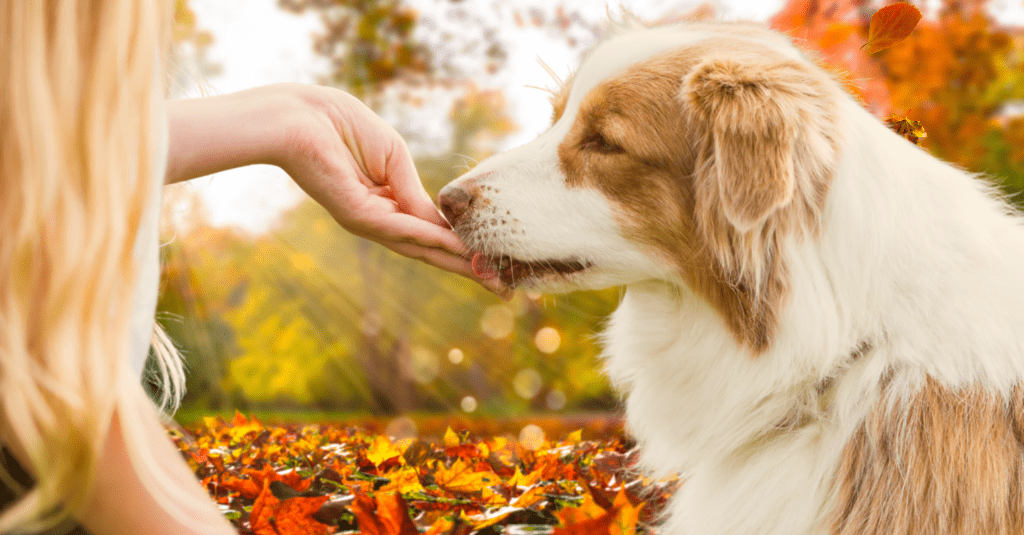Diarrhea
Dog Diarrhea Supplements
100% natural, vet-formulated
How NHV Supplements Help Dog Diarrhea
Pet parents dealing with dog diarrhea know it’s never fun. The mess, discomfort, and midnight potty runs can be challenging for both you and your beloved pup. NHV offers vet-formulated dog diarrhea supplements designed to help naturally with dog diarrhea, while also supporting overall gut health and underlying causes such as worms or parasites.
NHV’s primary supplement for dog diarrhea is Plantaeris. This gentle, natural formulation helps support diarrhea relief and soothe stomach cramps. The herbs in this blend, such as Myrrh, are known for their carminative and anti-inflammatory properties, while Chamomile helps gently soothe the digestive tract. Together, these herbs work as a natural diarrhea aid for dogs.
Additional canine diarrhea supplements that may provide support include:
- NHV Probiotic & Prebiotic, which helps maintain healthy gut bacteria
- Yucca, widely used in pet nutrition to support nutrient absorption, help reduce stool odor, and support gut comfort
- Inulin-PK, which helps support intestinal balance and may assist with parasites such as worms
- Multi-Essentials, a herbal formulation rich in vitamins and minerals to help support pets who may feel fatigued during diarrhea
- Pumpkin Treats, all-natural dehydrated chips for pets. Pumpkin is rich in fiber and can help support gut health.
“A pet’s immune health is directly linked to its digestive health (as much as 80%). The beneficial probiotics keep the detrimental microorganisms at bay so that your furkiddo’s health is optimal. Several factors and conditions can lead to an imbalance in the bacterial environment, such as allergies, illness, age, and stress.”
- Dr Yuvia Hernandez, DVM.
What’s your dog’s poop telling you? Read here.
If your pet is suffering from Dog Diarrhea, and you would like guidance from one of our pet experts, please reach out to petexpert@nhvpetproducts.com.
Read More About Diarrhea Causes In Dogs
For normal digestion in dogs, it takes about eight hours for food to travel through a dog’s small intestine. This is where they absorb most of the nutrients and around 80% of their water. Afterward, the colon concentrates the remaining fecal matter, forming well-shaped stools free of mucus, blood, or undigested food. Canine diarrhea supplements help with this reabsorption as a preventive measure, aiding in a better digestive environment.
When a dog has diarrhea, they pass frequent, loose, and unformed stools. This digestive disorder can lead to dehydration, electrolyte imbalances, and, if left untreated, may lead to serious health issues. Spotting diarrhea early and incorporating dog diarrhea supplements helps keep your fur-kiddos comfortable and healthy.
Signs and Symptoms of Diarrhea in Dogs
- Sudden urge to defecate
- Straining or discomfort during bowel movements
- Stool has mucus or a little blood in it
- Loss of energy or lethargy, more than usual
- Doesn’t want to eat
- Eating habits change

Causes of Diarrhea in Dogs
Dietary Causes
One of the most common causes of diarrhea in dogs is dietary indiscretion. Intestinal indiscretion occurs when the natural scavenger in your dog eats indigestible substances such as garbage, decayed food, dead animals, grass, plants, plastic, paper, and any number of other foreign objects. Please note that foreign objects are a medical emergency and require emergency care from your veterinarian. Do not use supplements or laxatives for foreign objects.
NHV dog diarrhea supplements support overall health for your pets.
Infections
The second most common cause of diarrhea in dogs is bacterial and parasitic infection, caused by parasites like roundworms, hookworms, whipworms, and threadworms, as well as the ingestion of rotting food.
Viruses like parvovirus, canine coronavirus, and rotavirus can also mess with the digestive tract’s nutrient absorption mechanism, leading to fits of diarrhea without supplements.
What some pet owners don’t know is that certain infectious diseases that require medications like heart medication, dewormers, and antibiotics can sometimes cause diarrhea as a side effect. Luckily, you can help soothe these symptoms with natural remedies for dog diarrhea that make recovery a simpler process.
Underlying Health Conditions
Chronic illnesses such as irritable bowel syndrome (IBS) or inflammatory bowel disease (IBD) can cause persistent diarrhea in dogs. These conditions affect the intestines’ ability to absorb nutrients properly, a condition called malabsorption, leading to ongoing digestive issues that require veterinary care and supportive dog diarrhea supplements.
Food Intolerances
Food intolerances can cause diarrhea, and some dogs seem to have difficulty tolerating certain foods, including beef, pork, chicken, horsemeat, fish, eggs, spices, corn, wheat, soy, gravies, salts, spices, fats, and some commercial dog foods. Food intolerances are not the same as food allergies, as they cause dermatitis and vomiting, but rarely diarrhea.
Stress and Environmental Factors
Stress, anxiety, or excitement can all affect a dog’s digestive health and result in diarrhea. It’s usually toxins like cigarette smoke, certain plants, or sudden changes in the environment that may trigger digestive upset. Removing the stressor usually removes the digestive issues, but adding supplements for dog diarrhea can help mitigate these stressors if they are unavoidable.
How to Treat Diarrhea in Dogs
Diarrhea is an uncomfortable experience for a dog, often leading to further digestive issues if they stop eating or can’t get the nutrients from the food they do eat.
NHV offers vet-formulated canine diarrhea supplements to help soothe your dog’s stomach and get their digestive system back on track. These work best when you are under the care and supervision of your vet to figure out what’s causing the issue and make sure your dog is receiving the correct treatment and dosage.
Frequently Asked Questions About Diarrhea in Dogs
How can I prevent diarrhea in my senior dog?
Consistent diet, regular vet check-ups, and lifestyle changes (like reducing stressors that trigger digestive upset) can all help maintain digestive health in senior dogs. You can use dog diarrhea supplements, like NHV Plantaeris, as a proactive measure.
What diet is best to aid diarrhea in dogs?
To reduce the chance of diarrhea, switch to a high-quality diet your dog can easily digest, but don’t change foods on them suddenly. When you are ready to add something new to their diet, do it slowly so their stomach can get used to it.
Do NHV supplements work for chronic dog diarrhea?
Yes. NHV supplements are made to be safe for dogs to take over an extended period of time due to their all-natural components. It’s important to always work with your vet for any pet health condition, especially for chronic diarrhea. Dog supplements are part of a holistic strategy to ease discomfort while a solution to the issue is being professionally treated.
Additional Support Tips
Provide your dog with plenty of water and consider restricting access to food for 24 hours. See your vet if diarrhea persists or is accompanied by vomiting or fever. Look for stools that are black and tarry or contain blood, and watch for signs of weakness or depression in your pet.
Seek NHV’s veterinarian’s advice for further questions or to discuss which natural remedies for dog diarrhea are right for your pet.



 CAD
CAD
 US Dollar
US Dollar